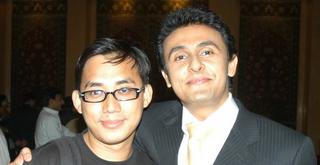Sonu Nigam: Singers are like labourers!

Sonu Nigam reveals to Whistleblower his frustration with the attidtude of the Indians towards singers and the exploitation by music companies... Among the current lot, which is the best music director? I can’t point out any one music director and say he is the best. I like AR Rehman and Anu Malik. Among the upcoming ones, Sandeep Chowta and Vishal Sekhar are very good. In fact, they are equally good. What are you working on now? My latest album Chanda Ki Doli is out and is doing quite well. I am going to be in the Indian Idol as the judge once again, which will be confirmed very soon. I am also looking at some film scripts that have come my way. But this time I am not going to accept any of them without studying them properly. Don’t your flops at the box-office deter you? It’s not me who wants to be an actor. It’s the directors and producers who think I have the potential and approach me. I just can’t decline their offers. I am too polite. Does one need a godfather to become a playback singer in Bollywood? First of all, we should have good music companies who can groom new talents and promote them. But new aspirants should not worry. There is lot of talent hunt TV programmes of which I am a part and parcel of. If you have what it takes to become a playback singer, there is nothing that can stop you. Don’t you get threatened by the singers you have promoted in these programmes? If I felt threatened, I would have never been a part of these talent hunts. I also work hard as any other singer is. I am one of the best singers in this country. How much does a singer earn? Singers get a raw deal in Bollywood. Music companies pay us peanuts, and if it were not for the shows, I would be a wearing a pyjama now. Music companies rob us of our due revenue, and pocketed it for themselves leaving singers in the cold. We are like labourers. What’s worse, in this country singers are not given respect despite the fact that music is a part of our culture. The only people who get all the limelight are the actors and cricketors. This is so different from other countries who treat their singers as national icons. Even Pakistan gives more respect to their singers. And in England, ordinary band like Spice Girls are promoted by their music company aggressively. Here, my music is promoted as a Shah Rukh Khan or a Shahid Kapur number. Why are you not protesting? I am getting all the singers to form an association to voice our demands and protect our rights. We will take legal recourse, if need be, to claim our rights of copyrights and royalties. Due to my activism, I am getting a lot of opposition from the music companies and they are trying hard to nullify the association. |







